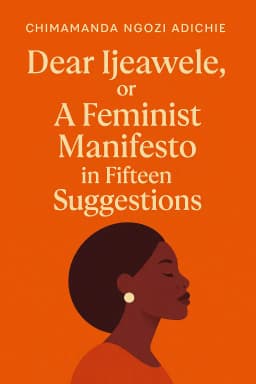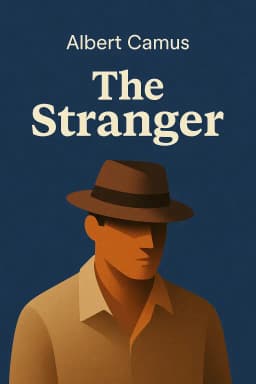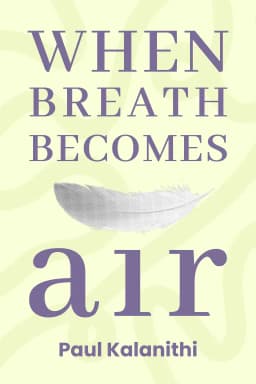
The Sickness of Being
Golden Hook & Introduction
SECTION
Michael: Alright Kevin, quick role-play. You're a Parisian publisher in 1938. I slide a manuscript across your desk. The plot? A historian gets profoundly sickened by a pebble, a tree root, and his own hand. Your response? Kevin: My response is: 'Monsieur, have you considered a long vacation? And perhaps a different line of work?' It sounds less like a novel and more like a very detailed doctor's note. Michael: Exactly! And yet, that very book, Nausea by Jean-Paul Sartre, becomes a cornerstone of 20th-century philosophy. What's fascinating is that Sartre, a young philosophy teacher in a dreary French port town, basically wrote this as a way to show philosophy, not just tell it. He wanted to make the reader feel the absurdity of existence. Kevin: So he wanted to give his readers a philosophical stomach ache. Charming. I can see why it was a tough sell. Michael: It’s a profound kind of stomach ache, though. And it doesn't start with some grand cosmic revelation. It starts small, almost like a medical mystery.
The Sickness of Being: What is 'The Nausea'?
SECTION
Kevin: A mystery? What do you mean? He just feels off, right? Michael: Right, but he can't figure out why. He’s a historian, Antoine Roquentin, living in this fictional town called Bouville—which, by the way, is Sartre’s little joke, it basically means 'Mud Town'. Roquentin starts keeping a diary to track this strange new feeling, this "illness." Kevin: And what are the symptoms? Michael: That's the mystery. It’s not a headache or a fever. It happens when he interacts with the world. There’s this incredible scene early on where he’s at the seaside. He sees some kids skipping stones, and he decides to do the same. He picks up a smooth, flat pebble... and he just can't throw it. He's frozen. Kevin: He can't throw a rock? That sounds... a bit dramatic. Is he just overthinking it? Or is this the 'Nausea' you mentioned? Michael: This is the Nausea. In that moment, the pebble stops being a 'pebble'—a familiar object with a purpose, something to be skipped. It becomes this alien thing in his hand. He feels its weight, its coldness, its raw, brute existence. It’s no longer a tool; it’s just… there. And the feeling is so repulsive he has to drop it and walk away. Kevin: Huh. I think I get that. It's like when you say a word over and over again, like 'door' or 'lamp,' until it loses all meaning and just becomes this bizarre, alien sound. Michael: That is a perfect analogy. The Nausea is that feeling, but for all of reality. It's the moment the comfortable labels we put on things peel off, and we're left staring at the raw, unlabeled 'stuff' of the world. This is Sartre’s core idea in action: "existence precedes essence." Kevin: Okay, hold on. That's one of those big philosophical phrases. Break that down for me. "Existence precedes essence." Michael: It means we are born—we exist—without any pre-defined purpose or meaning. We're just here, like that pebble. Our "essence"—our purpose, our identity, what we are—is something we have to create for ourselves through our choices and actions. The people of Bouville, the 'humanists' Roquentin despises, live their lives believing they have a fixed essence, a right to exist. The Nausea is the horrifying realization that they don't. That nothing does. Kevin: Wow. So it’s not just the pebble. This feeling starts to spread? Michael: It infects everything. He feels it holding a doorknob. He feels it when he shakes the hand of a man in the library, the Self-Taught Man, and the hand feels like a "fat white worm." The human world, with its routines and purposes, is a thin veneer. The Nausea is the feeling of that veneer cracking and seeing the thick, meaningless paste of existence oozing through. Kevin: That is a deeply unsettling image. So he's losing his grip on the meaning of everything around him. Michael: Exactly. And that's terrifying for him. He finds temporary comfort in predictable things, like the schedule of the local tram. Why? Because the tram has a clear purpose, an essence. It runs on time, it follows its tracks. It's not just a random lump of metal. But that comfort is fleeting, because he knows what lies underneath.
The Collapse of Meaning: When Stories and the Past Fail
SECTION
Michael: And this peeling away of meaning doesn't just happen with objects. It starts to infect the biggest source of meaning in his life: his work. Kevin: Right, he's a historian, isn't he? He's writing a book about some 18th-century aristocrat. Michael: The Marquis de Rollebon. And at first, this project is his ultimate escape from the Nausea. He can lose himself in the past, in the life of this other man. Rollebon gives Roquentin's existence a purpose. But then, the Nausea strikes again. He's writing about Rollebon, and he has this devastating realization. Kevin: What's that? Michael: He realizes the past doesn't exist. It's gone. All he has are these scraps of paper, these conflicting accounts. And in trying to piece them together, he's not discovering Rollebon's life, he's inventing it. Rollebon is just a vessel for his own thoughts. The man is dead, and Roquentin is the only thing keeping him alive. The moment he stops thinking about him, Rollebon vanishes. Kevin: Oh, man. So his entire project, his reason for being in Mud Town, is a sham. Michael: A complete fiction. And this leads him to an even bigger, more crushing insight about the nature of "adventures." He realizes he's never had a real adventure in his life. Kevin: But the book says he's traveled all over the world! Central Europe, North Africa, the Far East. How has he not had an adventure? Michael: Because, he concludes, adventures don't happen while you're living them. They only become adventures when you tell them afterward. When you're living, it's just a chaotic sequence of events. One thing happens, then another. There's no plot, no foreshadowing, no climax. The story only emerges in retrospect, when you select certain moments and arrange them into a neat narrative with a beginning, middle, and end. Kevin: That hits hard. It's so true. It’s the logic of every vacation photo on Instagram. You're not living an adventure; you're telling a story of an adventure. The moment you stop to frame the perfect picture of the sunset, you're not in the sunset anymore. You're a narrator. Michael: Precisely. And this is where Sartre gets really controversial. Some critics argue he's saying that all narrative, all storytelling, is a form of "bad faith." It's a lie we tell ourselves to escape the messy, contingent chaos of real life. Roquentin realizes he's been trying to live his life as if it were a story, and it's all been a delusion. Kevin: So my life isn't a hero's journey? It's just... a pile of stuff that happened? That's bleak. Michael: It's the bottom of the existential pit. And Sartre is determined to take us there.
The Glimmer of Freedom: Can Art Save Us?
SECTION
Michael: And that is rock bottom for Roquentin. Objects are alienating, the past is a lie, stories are a delusion. His attempts at human connection also fail spectacularly. He meets his old flame, Anny, who is just as lost as he is, trying to create "perfect moments" like scenes in a play. He has this long, awkward lunch with the Self-Taught Man, whose naive belief in humanism is shattered when he's publicly humiliated in the library. Everything he tries to hold onto dissolves. Kevin: At this point, I'd be looking for that vacation you mentioned at the start. A very, very long one. Michael: He gets there. He's in a public park, and he has the book's most famous, climactic vision. He's looking at the root of a chestnut tree. And the Nausea just completely overwhelms him. The root isn't a 'root' anymore. It's this "black, knotty mass, entirely beastly," this monstrous, terrifying, and utterly meaningless thing. He realizes that everything, including himself, is just like that root. It exists without any reason or necessity. It's just... extra. Superfluous. Kevin: That's the ultimate Nausea, then. The realization that existence itself is absurd. So what's left? How do you come back from that? Michael: You almost don't. But then, he's in a café, the "Railwaymen's Rendezvous," feeling completely defeated. And someone puts a jazz record on the gramophone. It's an American song, "Some of These Days." And as he listens, he has an epiphany. Kevin: The music saves him? Michael: In a way. He realizes the song... it exists differently. The chestnut root was soft, messy, absurd. But the melody of the song has a rigid, necessary structure. It has a beginning and an end. It unfolds in a perfect, unchangeable order. It's not a messy, contingent thing. It has escaped the messiness of existence. It's a different kind of being. Kevin: So art is the loophole in the system of absurdity. Michael: It's a potential loophole. A glimmer of hope. He realizes he can't write a history book, because that's about things that existed, and you can't justify one existence with another. But, he thinks, maybe he could create something new. A story. A novel. Something that doesn't pretend to be real. Kevin: A work of fiction. Michael: Exactly. A book that would be, in his words, "beautiful and hard as steel." A story so perfectly constructed that it would exist in its own right, like the jazz song. And he thinks that maybe, just maybe, if he could create something like that, then afterward, he could look back on his own messy, nauseating, pointless existence and think of it with a little peace. The creation of the art wouldn't save his life, but it might justify it.
Synthesis & Takeaways
SECTION
Kevin: Wow. So the whole journey is from feeling sick because the world is meaningless, to realizing all our comforting stories are lies, to finally landing on this idea... that maybe you can create a new kind of story, a work of art, that doesn't lie. It acknowledges the meaninglessness but creates its own perfect, separate meaning. Michael: That's the heart of it. And Sartre doesn't give us an easy, happy ending. The novel ends on a question, a possibility. But he's suggesting that the ultimate act of human freedom in a contingent world isn't finding meaning, but creating it. And what's so brilliant is that the book Roquentin imagines writing… it sounds a lot like Nausea itself. Kevin: Whoa, so the book is its own justification. Michael: It's the ultimate meta-move. It’s a story born from the realization of meaninglessness, and its very existence as a perfect, self-contained work of art is the answer to the problem it poses. It’s an act of defiance against the Nausea. Kevin: That's incredible. It really makes you wonder, what are the 'stories' we tell ourselves every day to get by? Our job titles, our life plans, our 'adventures.' And what would happen if we stopped believing them for just a moment? Michael: A question that's as unsettling and necessary today as it was in 1938. Thanks for listening. Kevin: This is Aibrary, signing off.









